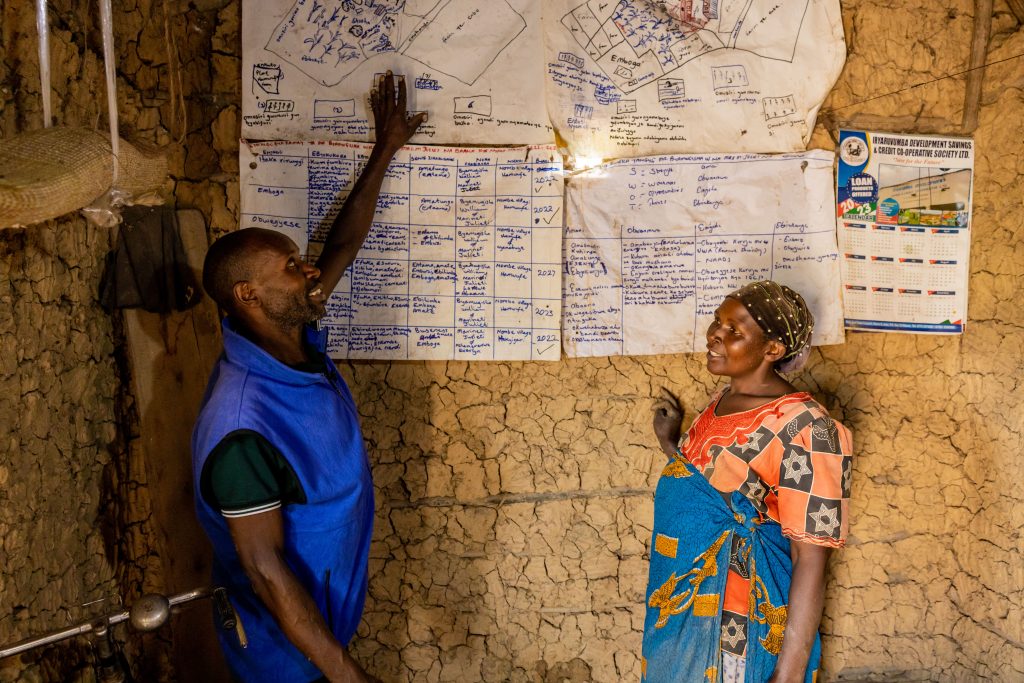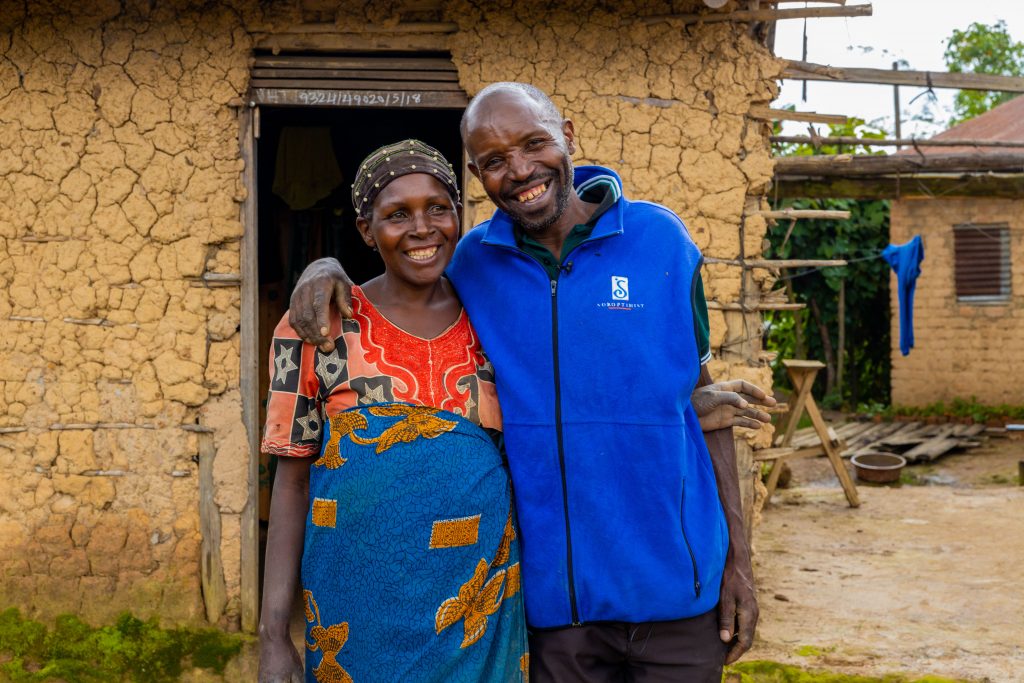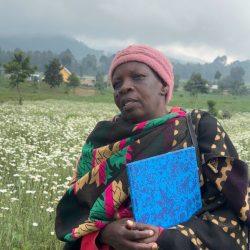Household Plans – Shaping the Future
Blog | 28/04/24
Peninah Mushabe – a mother of five found life and marriage so challenging! Her household faced financial and domestic challenges that often resulted into domestic violence and endless fights between her and her spouse. She attests to living 10 miserable years in a marriage that only drained her until her involvement in Vanishing Treasures. “My turning point came when my home was selected and taught how to make a five-year household plan. This plan helped us lay a foundation for our development journey as a family and devise means to achieve our goals,” says Peninah.

Household plans are a component of the Vanishing Treasures Project under the PIP approach. PIP is an approach that brings household members together to assess their current situation and identify various activities that can help them to develop or achieve household set goals. The approach enables household members to define their status, develop the household vision, make a family inventory, a SWOT analysis and develop a 5-year household development plan.
According to Sarah Kigongo the Vanishing Treasures Project Officer, the approach promotes unity and collaboration as the family collectively works together to plan and achieve set goals, hence addressing marital gaps on one hand and generating a pool of ideas on the other. 120 households were skilled in developing household plans and by the end of the project 95% of the households had developed and started to implement and achieve the plans. Households testify to the relevance and importance of these plans and how they are gradually impacting their lives. A lot of positive change is evident among the beneficiary community including lifestyle change -from drunkenness to being responsible fathers and husbands, improved saving culture, reduced gossip among women to proper use of time towards achieving their targets, increased incomes, reduced domestic violence cases, stronger marriages, acquisition of property e.g. land, to mention but a few. “Words can’t express my gratitude towards this household plan education. We now have a family savings bank account and I no longer recklessly spend our earnings on alcohol” says Enock Niyonteze, Peninah’s husband. “I am even more grateful that the approach is wholistic. Through all the learning, my wife has been able to embrace domestic hygiene and sanitation which was previously the source of all our fights,” Enock adds.

For Peninnah and Enock, PIP was an eye opener. They were made to appreciate a lot of things including the importance of family planning, saving, joint planning and execution of duties. “I have 5 children that I could barely take care of because of my little income, but after the training we realized that it’s important to have few children whom you can ably support and right away we decided to stop producing and focus on development and securing the future for the 5 children that we already have, “says Peninah.
Guided by their 5-year household plan, the couple has been able to construct a 3 roomed residential house, purchase land worth UGX 2,000,000 (600$) for vegetable farming and purchase 5 sheep to ensure constant supply of organic manure for their gardens. Enock reveals that they recently made a profit of UGX 1,300,000 (350$) from their vegetable garden. He attributes this bumper harvest and sales to the application of organic pesticides and manure that they immediately embraced after the training.
Speaking about the importance of household plans, Esau Turyazayo, also a resident of Nombe village says household plans are the trigger that he needed to achieve his life’s goals. Esau says that the plan provided better guidance and with that he was able to visualize the future of his household and achieve his five-year plan in just one year. “I had plans but wasn’t sure on how to execute them, however after the PIP training everything became clearer. Together with my wife we embarked on every action planned and in a couple of months we had realized so much.
Esau is grateful to the PIP approach because it has taught him and many other men in the community the importance of planning and working as a couple on everything which he says has lessened the burden on many wives, enhanced family stability and development.
According to Stanley Bizimana, the LCI Chairman of Nombe village household plans are causing impact at both household and community levels. “I have seen good practices start, for example over 240 households have constructed good pit latrines. This is going to go a long way towards improving the hygiene and health of a lot of people in the community, which has been a challenge for a very long time” Stanely says.




